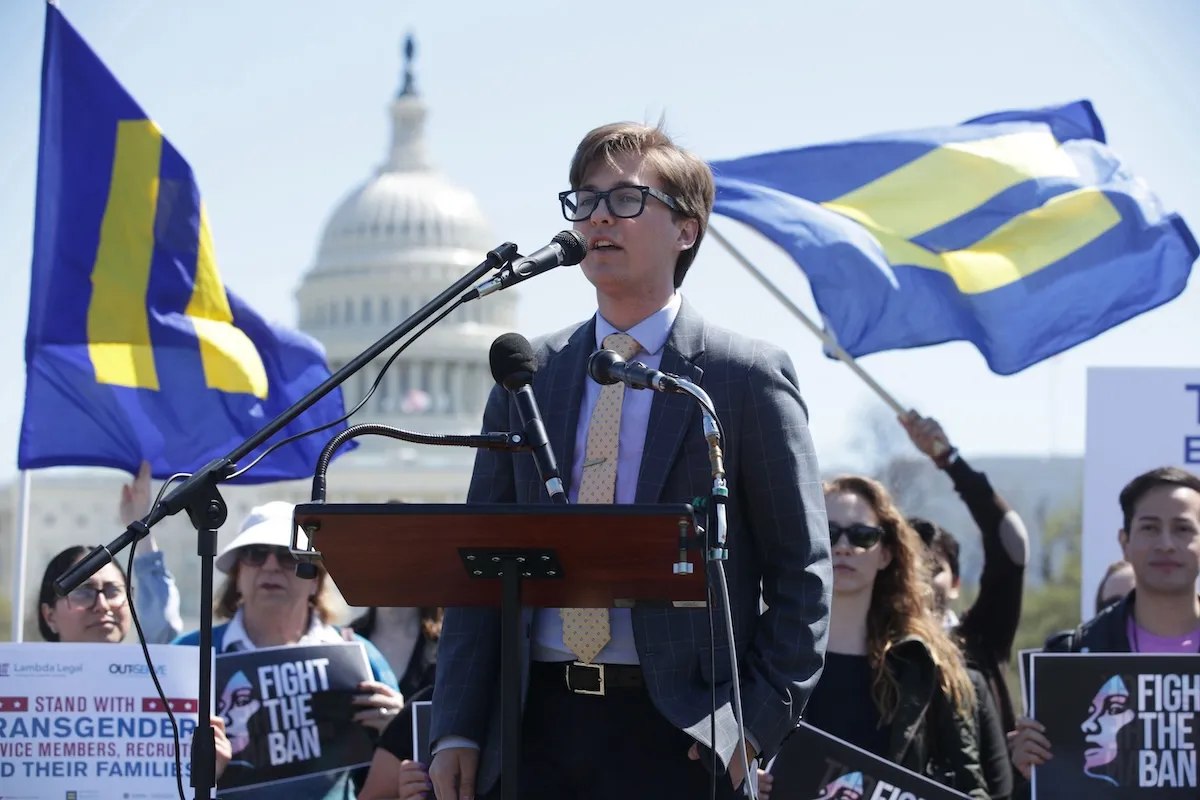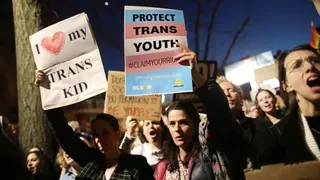August 6, 2021
United Airlines Will Require US Employees to Be Vaccinated
David Koenig READ TIME: 3 MIN.
United Airlines will require employees in the U.S. to be vaccinated against COVID-19 by late October, perhaps sooner, joining a growing number of big corporations that are responding to a surge in virus cases.
Company leaders called it a matter of safety and cited "incredibly compelling" evidence of the effectiveness of the vaccines.
"We know some of you will disagree with this decision to require the vaccine for all United employees," CEO Scott Kirby and President Brett Hart told employees Friday. But, they added, "the facts are crystal clear: everyone is safer when everyone is vaccinated."
United, which has 67,000 employees in the United States, is the first major U.S. airline to announce it will require vaccination for workers. The airline has been requiring vaccination of new hires since mid-June. Unvaccinated workers are required to wear face masks at company offices.
The Chicago-based airline estimates that up to 90% of its pilots and close to 80% of its flight attendants are already vaccinated. They get incentives to do so.
The airline told U.S. employees Friday that they will need to be fully vaccinated by Oct. 25 or five weeks after the Food and Drug Administration grants full approval to any one vaccine – whichever date comes first. So far, the FDA has only granted emergency-use approval of the Pfizer, Moderna or Johnson & Johnson vaccines. Full approval is expected soon.
Each employee will have to send an image of their vaccine card to the company. Those who don't will be terminated, with exemptions granted only for religious or health reasons, officials said.
Employees who are already vaccinated or do so by Sept. 20 will get an extra day of pay, according to the memo from Kirby and Hart.
Like United, Delta Air Lines has operated vaccination center for employees and recently began requiring the shots for new hires. Delta CEO Ed Bastian said this week that 73% of the airline's workforce is vaccinated. Executives at other airlines have similarly encouraged their workers to get vaccinated, even offering bonuses and paid time off to get the shots, but haven't made them mandatory.
Airlines and other companies in the travel business have been hit particularly hard by the pandemic, which led to sharp travel restrictions. The United States requires people entering the country, including U.S. citizens, to show proof of a negative COVID-19 test, and the Biden administration plans to require non-U.S. citizens to be vaccinated before entering the country.
A United executive said the airline has no plans to require that passengers be vaccinated, calling that a government decision. The CEOs of Delta and American have similarly ruled out a mandate for passengers.
Microsoft, Google and Facebook have said they will require proof of vaccination for employees and visitors to their U.S. offices starting this fall.
This week, Tyson Foods announced it will require all U.S. employees to get vaccinated by November – notable because unlike the tech companies, Tyson relies on many lower-paid workers who cannot do their jobs remotely. The president of the United Food and Commercial Workers criticized Tyson for imposing the requirement while the vaccines still have only emergency FDA approval.
A few governments are getting involved. California and New York City will require employees to be vaccinated or face weekly testing, and the California mandate extends to workers in public and private hospitals and nursing homes.
The new rules come as the U.S. struggles with a surge in infections driven by the highly contagious delta variant of COVID-19. The 7-day average of new reported coronavirus cases has jumped to more than 90,000 a day from around 12,000 a month ago, although hospitalizations and deaths have risen more slowly.





